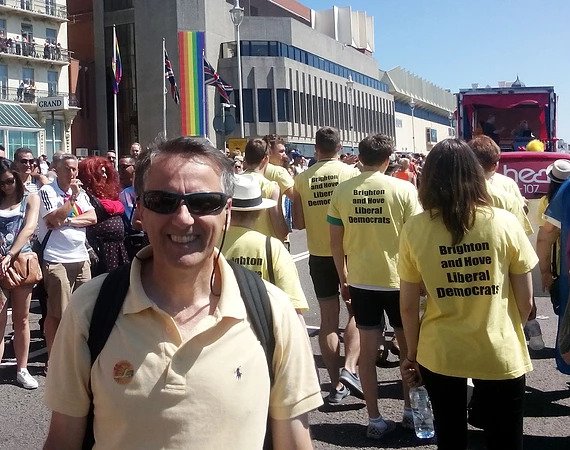
Having marched as part of last Saturday’s Brighton Pride parade (see photo), I’ve been musing in the days since about the role an event like this plays when the battle has largely been won.
I know people will say – quite rightly – that there’s still a lot more of the battle to be fought, but when you think that only a few decades ago homosexuality was illegal, and now we have same-gender marriage, we really have come a very long way.
Maybe Pride should these days be a celebration of how far we’ve come. Maybe we should celebrate the fact that you can now ask pretty much anyone whether they have ‘a partner’ or ‘a significant other’ without risking offence that you might be implying they might have a same-gender partner.
It’s interesting that the terms ‘gay’, ‘straight’, ‘homosexual’, ‘heterosexual’ etc have become somewhat subsumed in recent years by ‘LGBT’, a recognition of how the debate has moved on to less binary definitions of sexuality. But I wonder if this isn’t slightly missing a wider point.
To me, adjectives such as ‘gay’, ‘lesbian’, ‘straight’, ‘homosexual’ and ‘heterosexual’ ought to be used not to describe people but to describe relationships. Personally, I have never wanted to be in a sexual relationship with anyone other than a woman, but I’ve met enough people who are comfortable with either gender for me to stop and think.
If we just call such people ‘bisexual’, we continue the custom of labelling people with an adjective. Shouldn’t we be getting away from this by now? Surely we should say ‘He’s in a straight relationship’ or ‘She’s in a lesbian relationship’ rather than pigeon-holing people by their current sexual preference.
Maybe that should be the next challenge for Pride – that we take pride in our respectful use of adjectives, and lessen our labelling of people.
